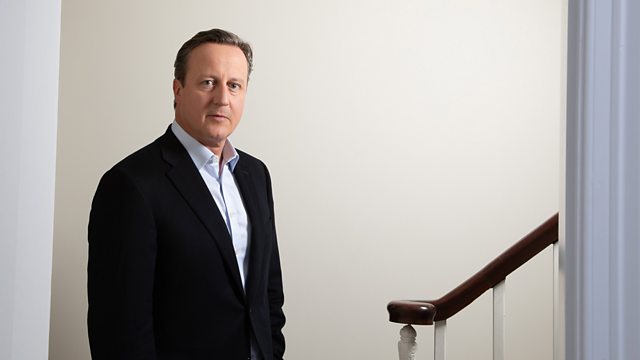
The Best Is Yet to Come
Examining David Cameron's leadership, from his rise to the top of the Conservative Party in 2005 to his 'sweetest victory' at the 2015 election.
With unprecedented access to David Cameron himself, and drawing on the testimony of leading allies and critics from his close team, party and coalition partners, this second programme explores the former prime minister’s legacy as a leader, from his rise to the top of the Conservative Party in 2005 to his ‘sweetest victory’ in the 2015 general election.
We begin at a moment of crisis for the Conservative Party, after three successive general election defeats. We investigate how Cameron and his small group of supporters sought radically to shift the party’s direction of travel, and how, against the odds, he managed to become leader in the teeth of opposition from the party’s traditional right wing, his veteran opponent David Davis and accusations of past drug use.
The film then investigates David Cameron’s programme to reshape his party and the opposition he faced in doing so. Environmentalism, social justice and international aid - prioritising these made the Conservatives appear more electable but also ran the risk of alienating their powerful old guard. Two crises, political and personal, threatened to destabilise everything Cameron had achieved. First, we explore the extent to which the 2008 financial crisis forced a fundamental rethink of 'modern, compassionate Conservatism' in a new political landscape that demanded tough economic measures. Secondly, we turn to the death of David Cameron’s firstborn son, Ivan, and its impact on Cameron as he wrestled with his personal grief in the public gaze.
The general election in 2010 was Cameron’s greatest test yet, and a hurdle at which he fell short. The film explores how, having failed to win an outright majority, David Cameron persuaded his party to join in a coalition with the Liberal Democrats. In the Rose Garden, Cameron and his new political comrade Nick Clegg suggested that a new era of political compromise was beginning, but did the coalition stir up resentment among backbenchers who felt marginalised by the new arrangement?
The film turns to the first major tests of David Cameron’s leadership. First, examining how the implementation of austerity, masterminded by his close ally George Osborne, saw the start of long-lasting public outrage and sowed the seeds of coalition division over the introduction of increased tuition fees. Secondly, questioning Cameron’s response to the Libyan Civil War - whether his decision to intervene was the right one, and whether he was experienced to lead the country in war.
Finally, the programme tackles the three great challenges of Cameron’s first term: the passage of gay marriage legislation in 2013, which was simultaneously the high point of Cameron’s 'compassionate' social agenda, but also the nadir of his relationship with the party and grassroots; the Scottish referendum in 2014, which saw Cameron’s government come dangerously close to presiding over the break-up of the Union; and the general election in 2015, in which David Cameron led his party to a victory that defied the polls, but at the expense of his coalition partners, the Liberal Democrats.
We leave David Cameron in 2015, at the height of his powers. Had his journey to this point set in motion political events and personal blindspots that would, ultimately, usher him out of office just over one year later?
Last on
More episodes
Previous
Next
You are at the last episode
Credits
| Role | Contributor |
|---|---|
| Director | Ian Leese |
| Producer | Melanie Fall |
| Producer | James Parris |
| Producer | Ian Leese |
| Executive Producer | Denys Blakeway |
| Production Company | Menace Productions Ltd |
